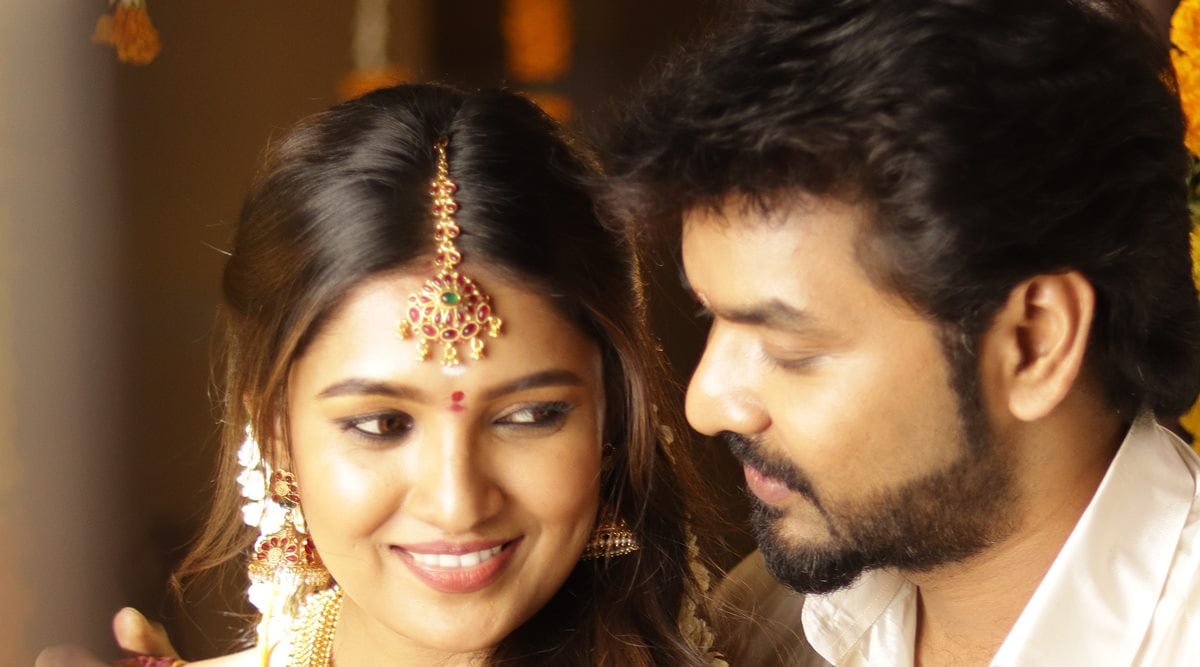 Triples is available on Disney+ Hotstar VIP.
Triples is available on Disney+ Hotstar VIP.In director Martin Scorsese’s The Aviator (2004 film), protagonist Howard Hughes (Leonardo DiCaprio) leaves no stones unturned to make war movie Hell’s Angels. He is so obsessed with making the best realistic war movie of his time that he gives two hoots about his eroding wealth much to the righteous condemnation of veteran Hollywood studio executives. And he completes filming the costliest air battle sequence for the movie and realises the fatal flaw in the production while watching rushes back in his editing room.
“Without something standing still behind the planes, we have got no idea of how fast we are moving. We got no sense of relative motion,” Howard tells a room full of his staff. It was his eureka moment. He needs clouds in the background for people to get a sense of the aeroplanes’ speed.
Now, why is this point important for a piece on new Tamil web series Triples, you may wonder. It is because one can’t recall a better scene from movies to demonstrate how movies are saved or ruined in editing rooms. Triples is one such product that could have been saved at the editing room, if not for the creators’ ‘chalta hai’ attitude. Director Charukesh Sekar has failed to recognise that there is no “sense of relative motion” in the material, without which the audience will have no idea what’s going on or an opportunity to connect and develop feelings for the characters in the series.
Sekar’s shaky grasp of the web series format is the source of all problems. Averaging about 20 minutes an episode, the total run time of eight episodes comes to around 160 minutes, which is the average length of a Tamil movie. In effect, writer Balaji Jayaraman has written a run-of-the-mill Tamil romantic comedy film and broken it into eight parts to make a series.
When you reach the end of the eighth episode, you may realise that you have no better understanding of any character in the series. You won’t get to see each character’s viewpoint that explains the complexity of a situation he or she is in. All you get is a broad-stroke of each character’s mediocre justifications for their actions, that could have been relevant in medieval society.
Take, for example, protagonist Ram’s (Jai) relationship with Meera (Vani Bhojan). The couple is married for four years, and due to some rare biological incompatibility, they are told that they can’t get pregnant. So what’s our modern-day hero’s next move: free Meera from the shackles of marriage and allow her to marry someone who is biologically compatible with her. This because he’s so tired of carrying the weight of shame originating from society’s marriage centric ideals. And, he wants to escape easily on the pretext of helping out Meera. He even doesn’t care to ask what Meera wants, and doesn’t pay heed when she pitches the idea of adoption. Ram may be a Chennai lad, who runs a fancy coffee shop at a multinational corporate office but he’s still a man under the firm grip of patriarchal beliefs.
For a minute, let’s look past the hero’s cultural backwardness. Now there is real scope for drama, as the couple goes through the tedious process of divorce. But, Sekar and Balaji have squandered the opportunity. The emotional struggle of making such a life-altering decision doesn’t even get a mention in the haste of the narration. Director Noah Baumbach made a whole movie (Marriage Story) on that for Netflix. And Sekar and Balaji could not even dedicate an episode to capture the emotional turmoil of the couple. The next thing we know, Ram is getting ready to marry Mythili, a North Indian girl living in Chennai, who falls in love with him after he accidentally saves her one night from eve-teasers. And all this happens without giving us the idea about the emotional stake in these series of events. There is no “sense of relative motion.”
And we get the Crazy Mohan-style comedy only in terms of names of the characters. There aren’t enough clever wordplays, puns and laugh-out-loud moments to encourage us to overlook other problems.
Triples is streaming on Disney+ Hotstar VIP.